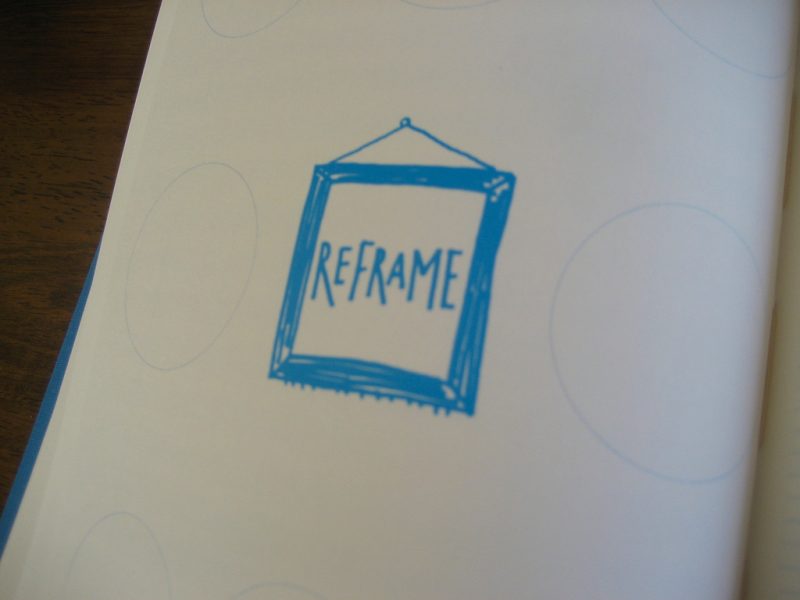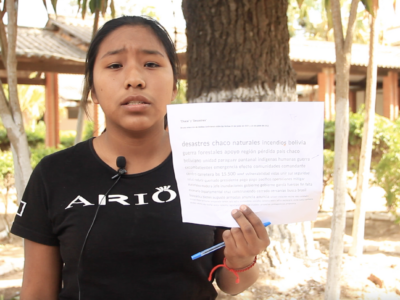The Reframed Stories Project asks people to respond to dominant themes and issues that appear in news coverage about their communities. These stories are reflections by people who are frequently represented by others in the media. Word clouds are created using the Media Cloud platform, a data analysis tool which examines a collection of media outlets over a specific period of time, allowing participants to analyze and discuss the preliminary insights into how they might be represented in the media. The project refrains from making conclusive pronouncements about the data, and instead is a starting point that creates space for discussion about how they can help shape their own media representation through digital media.
2018
In 2018, the Reframed Story series under the Rising Frames collaboration expanded to seven in-person workshops that were held in collaboration with local organizations and partners in five countries in Latin America.
These groups convened members of their networks to participate in the NewsFrames “Reframed Stories” model, by exploring the use of Media Cloud to begin the process of data analysis about representation of their communities or issues they care about. The diversity of participants representing indigenous, LGBTI, feminist, and human rights defenders communities took part in discussions about media representation and took part in initial data analysis of word clouds generated of a collection of media from their respective countries.
Following this preliminary data analysis, each participant responded to a series of questions or produced a comment about a particular word cloud about their community or issue. These responses were collaboratively crafted into a blog post and published on both the NewsFrames and Rising Voices site, as well as Global Voices in Spanish.
An overview of each seven workshops, with 44 participants in all:
- Quito, Ecuador (21 April) – Together with our partner El Churo, a community media development organization based in the capital city, 11 participants took part examining themes such as LGBT, extractive industries, gender issues, feminism, violence against women, and indigenous representation.
- Esmeraldas, Ecuador (4 May) – In this coastal city of Ecuador, El Churo organized this workshop with eight youth from the city’s youth center, many of whom are of Afro-Ecuadorian background. They also examined how their city is represented in the media due to recent media attention due to natural disasters and an ongoing unrest along the border with Colombia.
- Sarayaku, Ecuador (17 May) – This workshop was organized by the Communications Team for the Kichwa Peoples of Sarayaku, which included the facilitator who was one of the first participants of the Reframed Stories series. Five participants examined themes related to the Sarayaku community.
- Bogotá, Colombia (18 May) – Held at the Center of Internet and Society at Del Rosario University in the capital, four participants representing two indigenous communities, Wayuu and Arhuaco, examined word clouds related to their ethnicity and region in which they live.
- Osorno, Chile (26 May) – Our representative in the southern Chilean city with a strong Mapuche indigenous population organized a workshop with five participants who examined themes related to indigenous, Mapuche, and Huilliche communities.
- Oaxaca, Mexico (29-30 May) – With the help of our partner SURCO – a non-profit grassroots organization combining consulting, academic programs and local activism that focuses on food and water sovereignty, urban conviviality, defense of indigenous territories, and community-based radio and video — a workshop was held with six representatives from Zapoteco community radio stations, who examined the word indigenous, as well as specific customs related to indigenous communities such as ’tequio,’ which is a collective work in service to the community.
- Cochabamba, Bolivia (30 May) – In partnership with Warmi.Red, an organization empowering women on the internet, all 5 workshop participants have been active in advocacy and activism efforts to help raise awareness and prevent violence against women. They examined words associated with feminicide, violence, and women.









